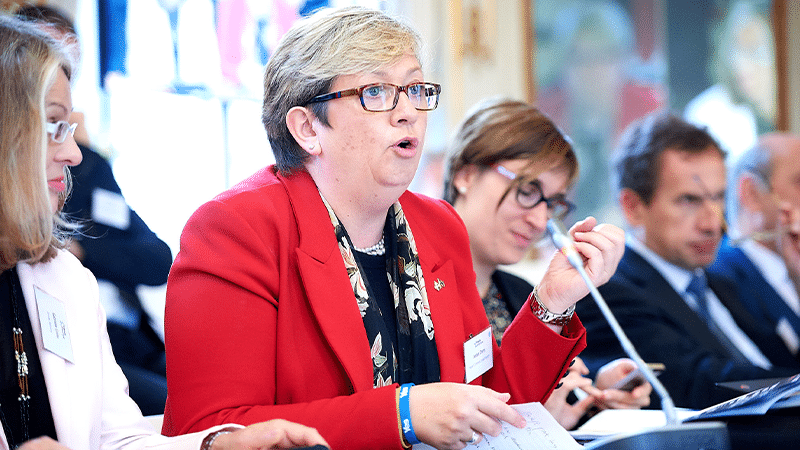An MP, who is also a senior lawyer, has said the Government’s Online Safety Bill will result in legal speech being censored online, following the Bill’s inclusion in the Queen’s Speech.
Joanna Cherry QC, the SNP MP for Edinburgh South West, said the Bill contains “potential threats to freedom of expression”, in particular its requirement for social media companies to address a new category of content deemed ‘legal but harmful’.
She said there is “significant danger” that, as drafted, the Bill will lead to “censorship of legal speech by online platforms” and that it will “give the Government unacceptable controls over what we can and cannot say online”.
‘Vexatious complainants’
In a debate in the House of Commons, Cherry said that, as a former sex crimes prosecutor, she applauds the desire to protect children from inappropriate content online, but said the Online Safety Bill contains worrying measures which would restrict legitimate free speech.
She added that the ‘legal but harmful’ category “will enable vexatious complainants to exploit that lack of definitional clarity to try to shut down lawful speech on topics of public concern on the grounds that they are ‘harmful’ and should be subject to censorship”.
Liberal Democrat Jamie Stone asked if Cherry shared his concern that the definition of what constitutes ‘legal but harmful’ will be contained only in secondary legislation. This means it can be put in place by Culture Secretary Nadine Dorries or her successors with little or no parliamentary scrutiny.gives the Government unacceptable controls over what we can and cannot say online
The lawyer agreed, saying: “I don’t think it’s safe to leave setting out definitions that will impact on free speech to a Government Minister”.
Routine censorship
Cherry also highlighted how quick social media companies are to censor views that do not correspond with their own values.
She said: “Twitter routinely censors perfectly legitimate contributions to the public debate on women’s sex-based rights while routinely ignoring threats of violence and worse to women participating in the debate.”
The QC said the Government should not be “handing over the policing of speech to private companies such as Twitter, whose records show that they cannot be trusted”.gives the Government unacceptable controls over what we can and cannot say online
QC: Govt’s Online Safety Bill ‘incompatible with human rights legislation’
Commons hears free speech concerns over Online Safety Bill
Revamped Online Safety Bill still a serious threat


